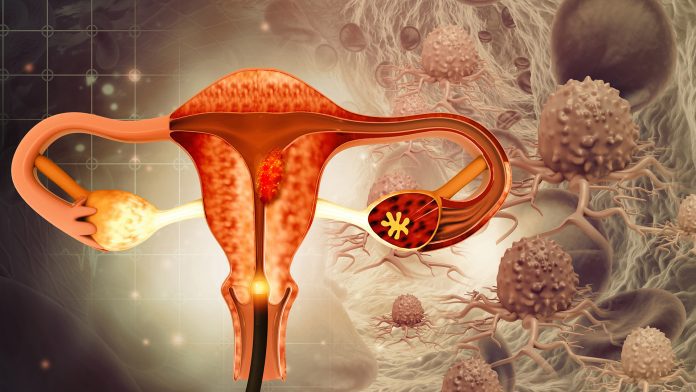
An international team of researchers have found that high-precision medicines can be used in oncology, allowing for better treatment for ovarian cancer.
Mutations of BRCA1 and BRCA2 genes can increase the risk of ovarian, breast, pancreatic and prostate cancer. The BRCA1 gene is inherited by one in 400 people, while the BRCA2 gene is inherited by one in 800.
A new class of drugs known as PARP inhibitors were found to be highly effective against BRCA mutation-related tumours by researchers in 2016. However, around 50% of women with ovarian cancer experienced a recurrence of the disease within five years.
An international team led by the University of Geneva (UNIGE), the Geneva University Hospitals (HUG), the Centre Léon Bérard in Lyon, the Curie Institute, the French collaborative group ARCAGY- GINECO and the European consortium ENGOT, looked to improve treatment for ovarian cancer through experimental therapies.
The researchers studied the genetic data of 233 patients in a pre-marketing phase III clinical trial of olaparib, a PARP inhibitor added to bevacizumab, which is already used as a treatment for ovarian cancer.
The researchers observed that the efficacy of PARP inhibitors depended on the precise location of the mutation on the gene. Their findings show that high-precision medicine is possible in oncology.
The results have been published in the journal Annals of Oncology.
BRCA1 and BRCA2 genes can cause aggressive cancers
The BRCA1 and BRCA2 genes are involved in the repairing of DNA and therefore play an essential role in maintaining the genomic stability of cells. If these cells are mutated, they are less effective in repairing damaged DNA, a phenomenon that promotes the development of cancers.
‘‘The resulting cancers are particularly aggressive. Ovarian cancer, which often has a very poor prognosis, is one of the most common cancers in women who carry a mutation in one of these two genes,” explained Dr Intidhar Labidi-Galy, a researcher at the UNIGE Faculty of Medicine, and a staff physician in the Department of Oncology at the Geneva University Hospitals, and a corresponding author of the study.
The introduction of PARP protein inhibitors, such as Olaparib, represents a significant advancement in therapeutics. This is the first time a treatment for ovarian cancer with a significant overall survival gain has been proposed.
“Although previous studies showed PARP inhibitors to be highly effective in BRCA1 and BRCA2 associated cancers, almost half of the patients had their cancer recur. Why did this happen? That’s what we wanted to decipher here,’’ added Dr Labidi-Galy.
The researchers completed a detailed analysis of BRCA1 and BRCA2 mutations in 233 patients enrolled in the pre-marketing study of Olaparib. The drug was administered in combination with bevacizumab. All participants had advanced ovarian cancer, and all carried a mutation in the BRCA1 gene (159 patients) or the BRCA2 gene (74 patients).
High-precision drugs can revolutionise treatment for ovarian cancer
“We decided to increase the precision of our analyses by detailing the mutations involved, and especially what differentiated those sensitive to the drug from those that were less so,” explained Isabelle Ray-Coquard, a professor of oncology at the Centre Léon Bérard.
“And the difference comes from the localisation of the mutation on the gene: if the mutation is located in the DNA-binding domain, the drug is actually much more effective,” she added.
DNA-binding domains are protein motifs which can bind to DNA and are involved in the regulation of gene expression.
‘‘PARP inhibitors aim to create an accumulation of DNA breaks in mutated cells, leading to their rapid death before they can create malignant tumours,’’ explained Dr Manuel Rodrigues, a practising hospital physician at the Institut Curie and co-first author of the article.
‘‘Mutations in a DNA-binding domain accelerate this process and significantly increase the effectiveness of the drug. It is less the case when the mutation concerns other functional parts of the gene,” he added.
‘‘It is undeniable that this class of drugs is extremely effective in a large proportion of patients – some even seem completely cured, whereas a few years ago they would have been doomed, and 90% of people with a mutation in a DNA-binding domain of the BRCA1 gene have not relapsed when the analysis was conducted,” concluded Ray-Coquard.

























